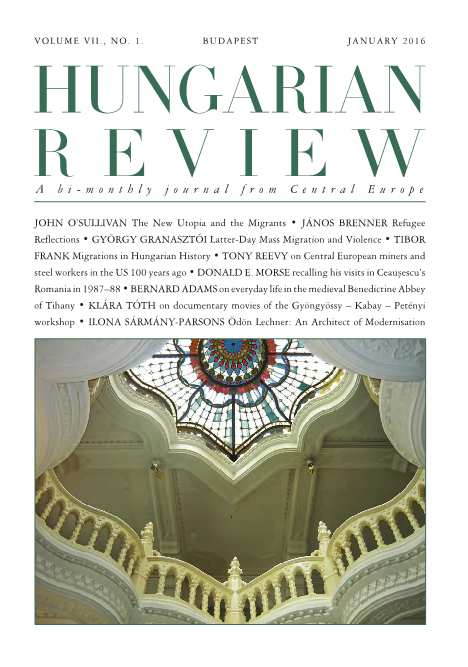Saying What Could Not Be Said: Csaba Lászlóffy’s The Heretic
Saying What Could Not Be Said: Csaba Lászlóffy’s The Heretic
Author(s): Donald E. Morse, Csilla BerthaSubject(s): Language and Literature Studies
Published by: BL Nonprofit Kft
Summary/Abstract: A prolific Hungarian poet, fiction-writer, essayist and playwright, Csaba Lászlóffy (1938–2015), member of the Hungarian ethnic minority in Romania, lived part of his life under the dictator, Nicolae Ceauşescu, in a world that strongly resembled that pictured in George Orwell’s 1984. Hungarians living inside the Romanian borders had to endure in the 1960s, 70s, and especially in the 80s various forms of cultural genocide in addition to the atrocities of the police state visited upon and shared by all the other inhabitants of the country. In his efforts to find ways of expressing unspeakable truths, Lászlóffy constantly experimented with different genres and forms, including besides dozens of plays, pseudo-historical short stories, historical fantasy-novels, diary-writing, pseudo-memoirs, parables and essays. In The Heretic (1970), an absurdist dystopia, he daringly incorporates brutal scenes of police torture by making use of material from previously published sources, such as Jean-Paul Sartre, Morts sans sépulture and the Czech Communist martyr Julius Fučik, A Report from under the Gallows, thus he could plausibly claim that he merely borrowed the scenes from historical or fictional sources, rather than transcribing contemporary Romanian events.
Journal: Hungarian Review
- Issue Year: VII/2016
- Issue No: 01
- Page Range: 81-82
- Page Count: 2
- Language: English

